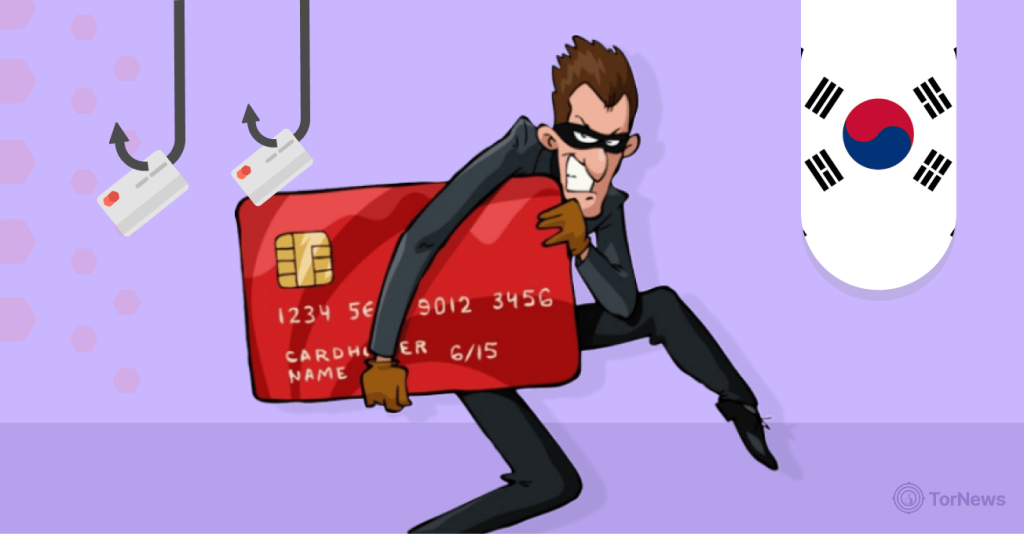-
The average price for a stolen South Korean credit card on the dark web has skyrocketed by 168% since 2023.
-
This surge in value is driven by high demand and the relative difficulty of stealing card data from countries with strong anti-fraud systems.
-
Cybersecurity experts warn that the low cost of this data allows even novice criminals to easily commit fraud.

The dark web is seeing some shocking price hikes. And it’s not for crypto or rare collectibles.
It’s for stolen South Korean credit cards. The value of this illicit data has more than doubled in just two years.
A Seller’s Market for Stolen Data
Imagine your credit card details being sold online. Now, imagine their price is going through the roof. That’s the reality for the data of South Korean cardholders.
A new report says the average price of a stolen Korean credit card shot up from $2.66 in 2023 to $7.15 in 2025. That’s a 168% jump.
This makes Korean card data one of the steepest climbers in value globally, a trend being seen in other countries as well. This surge is part of a broader global crisis, mirroring issues like the UK dark web crisis, where 1,800 stolen bank cards were recently found for sale. Now, Korea sits at number 12 for the fastest-growing prices worldwide. So why’s this happening? It’s really just basic supply and demand.
Cybercriminals are willing to shell out more for cards from places like South Korea because their anti-fraud systems are tougher. Better security means crooks have a harder time stealing the data, so there’s less of it out there—and that drives the price up on the dark web.
Though $7.15 is still a little less than the global average of $8, Korean cards have turned into a hot commodity. For context, the priciest cards come from Japan, going for about $23 each.
Why This Data is So Valuable
You might wonder what you get for your money on these dark web marketplaces. It’s rarely just a card number.
Most listings are full data packages. They include the cardholder’s name, address, and email. This extra personal information is a goldmine for criminals.
It allows them to commit identity theft and, crucially, helps them bypass fraud verification systems. To make things worse, about 87 percent of the stolen cards up for sale had more than a year left before expiration.
This gives criminals a long window to use or resell them. Adrianus Warmenhoven, a cybersecurity expert at NordVPN, put the low cost into a scary perspective. Warmenhoven compared the cost of a stolen card to a movie ticket. That means even beginners can get into cybercrime without much money.
The Ripple Effect of Data Breaches in Korea
The booming dark web market didn’t appear out of nowhere. It’s fueled by significant data breaches affecting major corporations globally. This pattern is clear in incidents like the Qantas dark web data leak, as well as the breaches affecting major South Korean companies. These incidents show the real-world financial damage that enables the dark web trade.
Just look at SK Telecom, a massive mobile carrier. The company recently told shareholders a data breach caused a staggering 90 percent drop in its operating profit.
Profits fell to 48.4 billion won ($34.1 million) last quarter. That’s down from 493 billion won a year earlier. The breach exposed the data of about 27 million customers.
The financial hit was enormous. SK Telecom faced a record fine of 134 billion won ($96.5 million). It also spent heavily on a “customer appreciation package” and had to replace millions of SIM cards.
In another recent incident, Lotte Card announced a huge data breach—hackers got into the personal info of three million customers. They got in because of a server problem that’s been there since 2017, and nobody noticed for almost two weeks.
Stuff like this really shows how rough things are getting. Cybercriminals are getting bolder, and honestly, with these big leaks still happening, the dark web just keeps growing stronger.